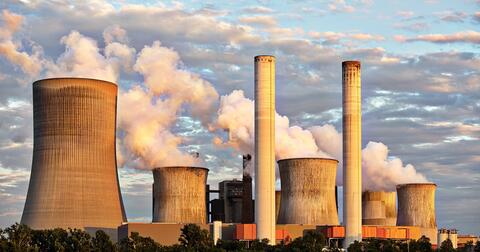Germany closes its last 3 nuclear plants
In America, nuclear energy is clean energy. But the Germans see it as too risky.
In America, nuclear energy is considered vital to a decarbonized future in which energy production does not lead to more carbon dioxide. So says the U.S. Department of Energy. So says Gov. Gretchen Whitmer.
Across the Atlantic Ocean in Germany, this is not the case. Germany on April 16 closed its last three nuclear plants, a plan that had been in the works since 2011, per CNBC.
“This is hugely disappointing, when a secure low carbon 24/7 source of energy such as nuclear was available and could have continued operation for another 40 years,” Henry Preston, spokesperson for the World Nuclear Association, told CNBC. “Germany’s nuclear industry has been world class. All three of those reactors shut down at the weekend performed extremely well.”
Germany couched the closures as a matter of safety.
“The risks of nuclear power are ultimately unmanageable,” an unnamed spokesperson for Germany’s energy agency told the network.
The three nuclear plants provided energy to 10 million homes in Germany, according to an open letter penned by nuclear advocates and published two days before the closure. That’s a quarter of the population.
“We call on you to use the remaining German nuclear power plants in order to alleviate the energy crisis and help achieve Germany’s climate targets,” the letter reads.
That call went unheeded. Two days after the April 14 letter, Germany stopped using nuclear energy.
Michigan Capitol Confidential is the news source produced by the Mackinac Center for Public Policy. Michigan Capitol Confidential reports with a free-market news perspective.


 Whitmer spent $61k on Switzerland trip
Whitmer spent $61k on Switzerland trip
 Whitmer spent $216,000 on Japan trip
Whitmer spent $216,000 on Japan trip
 State gave company $1.4M to choose Michigan, after it had already chosen
State gave company $1.4M to choose Michigan, after it had already chosen